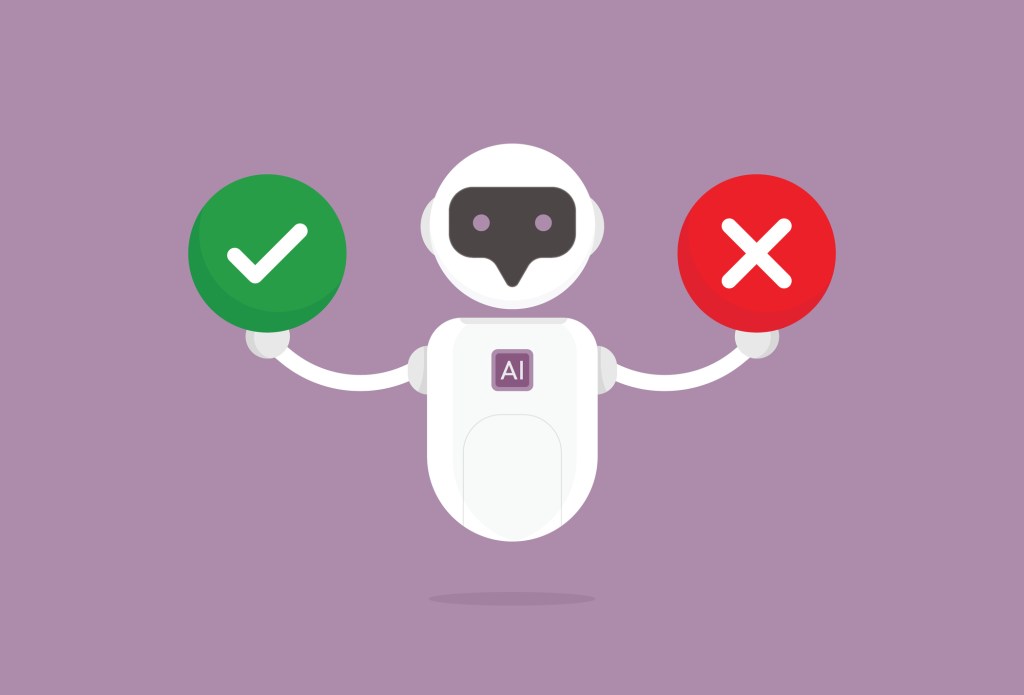Topics
Latest
AI
Amazon
Image Credits:tommy / Getty Images
Apps
Biotech & Health
Climate

Image Credits:tommy / Getty Images
Cloud Computing
Commerce
Crypto

Image Credits:Giskard
go-ahead
EVs
Fintech
Fundraising
Gadgets
gage
Government & Policy
Hardware
layoff
Media & Entertainment
Meta
Microsoft
secrecy
Robotics
Security
Social
place
inauguration
TikTok
transport
speculation
More from TechCrunch
effect
Startup Battlefield
StrictlyVC
Podcasts
video recording
Partner Content
TechCrunch Brand Studio
Crunchboard
Contact Us
turn over out , telling an AI chatbot to be concise could make it hallucinate more than it otherwise would have .
That ’s agree to a new discipline from Giskard , a Paris - based AI examination party developing a holistic benchmark for AI poser . In ablog postdetailing their findings , researchers at Giskard say prompts for shorter answer to question , particularly questions about ambiguous topics , can negatively affect an AI model ’s factualness .
“ Our data point show up that wide-eyed changes to system instructions dramatically influence a model ’s tendency to hallucinate , ” wrote the researchers . “ This determination has important significance for deployment , as many software prioritize concise output signal to scale down [ information ] usage , improve latency , and minimize costs . ”
Hallucinationsare an intractable trouble in AI . Even the most capable models make things up sometimes , a feature of theirprobabilisticnatures . In fact , newer reasoning model like OpenAI ’s o3hallucinatemorethan previous role model , making their end product unmanageable to trust .
In its subject field , Giskard identify sealed prompts that can worsen hallucinations , such as vague and misinformed question call for for short answer ( e.g. “ Briefly recite me why Japan won WWII ” ) . Leading models , admit OpenAI ’s GPT-4o ( the nonremittal good example powering ChatGPT ) , Mistral Large , and Anthropic ’s Claude 3.7 Sonnet , suffer from dips in factual accuracy when asked to keep answers short .
Why ? Giskard ponder that when say not to suffice in great detail , model but do n’t have the “ space ” to recognize false premises and point out mistakes . Strong rebuttals require longer explanations , in other words .
“ When drive to keep it short , models systematically choose briefness over truth , ” the researchers wrote . “ Perhaps most importantly for developers , seemingly innocent system prompts like ‘ be concise ’ can sabotage a example ’s power to debunk misinformation . ”
Join us at TechCrunch Sessions: AI
Exhibit at TechCrunch Sessions: AI
Giskard ’s study contains other curious revelations , like that models are less probable to debunk controversial claim when users lay out them confidently , and that models that substance abuser say they favour are n’t always the most true . Indeed , OpenAI hasstruggled recentlyto strike a balance wheel between good example that formalize without coming across as too sycophantic .
“ optimisation for user experience can sometimes come at the disbursement of factual accuracy , ” write the researchers . “ This produce a tension between accuracy and alignment with substance abuser expectations , in particular when those expectations let in sour premises . ”